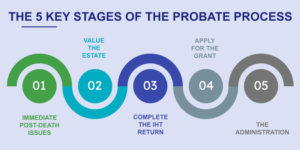Will Family Court Know I Have A Warrant?
Having an outstanding warrant can complicate many aspects of life, including family court proceedings. Family courts have access to certain records and information that may reveal active warrants, so it’s important to understand how this works if you have a warrant and need to attend a family court hearing.
How Family Courts Access Warrant Information
Family courts can access warrant databases and records in a few key ways:
Court Databases
Many family courts have access to centralized state and national databases that include outstanding warrant information. When a bench warrant is issued, it’s often entered into these systems which court personnel can search.
Information Sharing With Law Enforcement
Family courts may share information or have access to databases with local police departments and sheriff’s offices. This can provide courts with access to active warrant data.
Required Disclosures
Litigants in family court cases may have to provide information about criminal records, including any outstanding warrants, through required disclosures and filings. This would alert the court to any active warrants.
Routine Background Checks
Some family courts have a practice of running routine background checks on litigants, including warrant checks, as part of the case proceedings. This may reveal active warrants for a party in a case.
Typical Scenarios When Courts Check for Warrants
There are certain situations when family courts commonly review warrant databases or seek out information about possible outstanding warrants, such as:
Child Custody Cases
Family courts will gather as much information as possible when determining custody arrangements. Active warrants may be seen as a potential safety issue.
Requests to Travel With Children
If there is a request to travel with minor children, such as a vacation request, the court may check for any outstanding warrants that could prevent this.
Contested Proceedings
Courts are more likely to gather a wide range of background information when proceedings are contested by parties in the case. Warrant checks may be part of this.
Cases Involving Abuse or Neglect
Any case where abuse or neglect is alleged will likely trigger a comprehensive background check, including warrant checks on involved parties.
Requests for Order of Protection
Petitions for orders of protection may prompt the court to check for warrants to determine if the petitioner could be threatened by the respondent with a warrant.
How Judges Consider Active Warrants
If a warrant comes to light during a family court case, there are a few factors judges may consider:
Nature of Warrant
Judges will look at what the warrant was actually issued for to weigh any risks it could pose. More severe criminal charges are seen as higher risk.
Timing of Warrant
A very old warrant for minor offenses is viewed differently than recent and more serious charges with a current warrant. Timing matters.
Reason for Nonappearance
Judges may inquire why an individual did not appear in court to handle the warrant to see if it was avoided for safety reasons.
Order Violations
If the warrant stems from violating an existing court order, judges take this very seriously in family court proceedings.
Honest Disclosure
An honest accounting about the warrant and not attempting to conceal it works in a litigant’s favor versus hiding it.
How Active Warrants Impact Family Court Outcomes
An outstanding warrant could impact family court proceedings and outcomes in the following ways:
Custody Restrictions
Judges may place limits on child custody and require supervised visitation if a warrant poses safety issues.
Travel Limitations
Warrants often limit the ability to travel, especially with children, due to flight risks. Judges don’t want court orders violated.
Case Delays
The court may delay proceedings until the warrant is cleared, compromising case timelines.
Ordered Warrant Clearance
Judges may order people with warrants to proactively take steps to recall or clear them before cases can move forward.
Negative Influence
The existence of a warrant can negatively influence a judge’s perception of responsibility, honesty, and character.
Safety Plans
Courts may require explicit plans around child safety and preventing flight risks due to active warrants.
Request Denials
Petitions related to child relocation, travel, or protection orders may be denied due to unresolved warrants.
Strategies for Family Court With an Active Warrant
If you have an outstanding warrant and need to appear in family court, some strategies include:
Seek Warrant Recall
Work to get the warrant recalled before your family court date so it’s no longer active or outstanding.
Request Case Delay
Ask for your family court case to be postponed until you can get the warrant cleared to avoid complications.
Address Honestly
Be honest and upfront about the warrant with the judge instead of hiding it. Explain your plan.
Demonstrate Responsibility
Show how you are now responsible by taking steps to proactively resolve the warrant issue.
Highlight Compliance
Note any past compliance with court orders and that you want to comply going forward.
Develop Safety Plan
Create a detailed plan for child safety and preventing flight risks that the court can review.
Avoid Requests
Avoid requests involving travel, relocation or protection orders that a warrant may deny. Focus on what’s feasible.
Seek Legal Counsel
Consult a family law attorney to understand your rights and create the best strategy. Get expert advice specific to your situation.
Consequences of Avoiding Family Court Due to a Warrant
While it may be tempting to avoid appearing in family court if you have an outstanding warrant, this carries significant risks such as:
- Default judgement entered against you
- Loss of custody or visitation rights
- Arrest at future court appearance to enforce orders
- Inability to modify current orders that are problematic
- Missing deadlines to submit information
- No voice in proceedings impacting children and family
- Fines or enforcement actions for failing to appear
- Criminal charges for evading court proceedings
Key Takeaways
- Family courts access warrant databases and may be informed about active warrants relevant to cases
- Certain case types, requests and situations often trigger courts to check for outstanding warrants
- Judges weigh factors like the nature of the warrant and compliance in determining any risks or restrictions
- Unresolved warrants can negatively impact family court proceedings and outcomes
- Addressing warrants proactively and honestly is better than avoiding court and risking default judgements
- Experienced legal counsel can help develop the most strategic approach to resolving warrants and navigating family court cases
Conclusion
Having an active warrant can complicate family court matters and hinder your ability to get fair outcomes in proceedings regarding custody, support, and other critical issues. While warrants may come to light and judges factor them into rulings, steps can be taken to recall warrants and demonstrate responsible behavior. An upfront, well-planned approach while seeking legal guidance is advisable for successfully resolving your warrant and fulfilling obligations to family court. With a proactive strategy, outstanding warrants do not have to derail the ability to make your case and represent your children’s best interests in family court matters.
FAQs
Q: Can I be arrested for an outstanding warrant if I appear at a family court proceeding?
A: Possibly, although some jurisdictions prohibit arrests at courthouses. There are significant risks with ignoring warrants and skipping important family court proceedings. Working to recall warrants first is recommended.
Q: How far back will family courts check for warrants against litigants and parents?
A: There are no set limits, but very old, minor warrants are not treated the same as recent and serious ones. Courts weigh current potential risks and behavior patterns most heavily.
Q: What happens if both parents have active warrants in a custody dispute?
A: Judges consider the comparative severity and circumstances around both parents’ warrants. However, shared complication with warrants will require creative solutions such as temporary third-party custody.
Q: Can I be denied visitation rights with my child due to an outstanding warrant?
A: Yes, judges may place limits on visitation or require it to be supervised if your active warrant relates to serious safety issues or violations that put the child’s welfare at risk.
Q: Will paying outstanding fines recall a warrant or do I have to appear before a judge?
A: It depends on the type of warrant; some may be recalled by paying fines while others require appearing before a judge and showing up for your court date. Check with the court to be sure.







